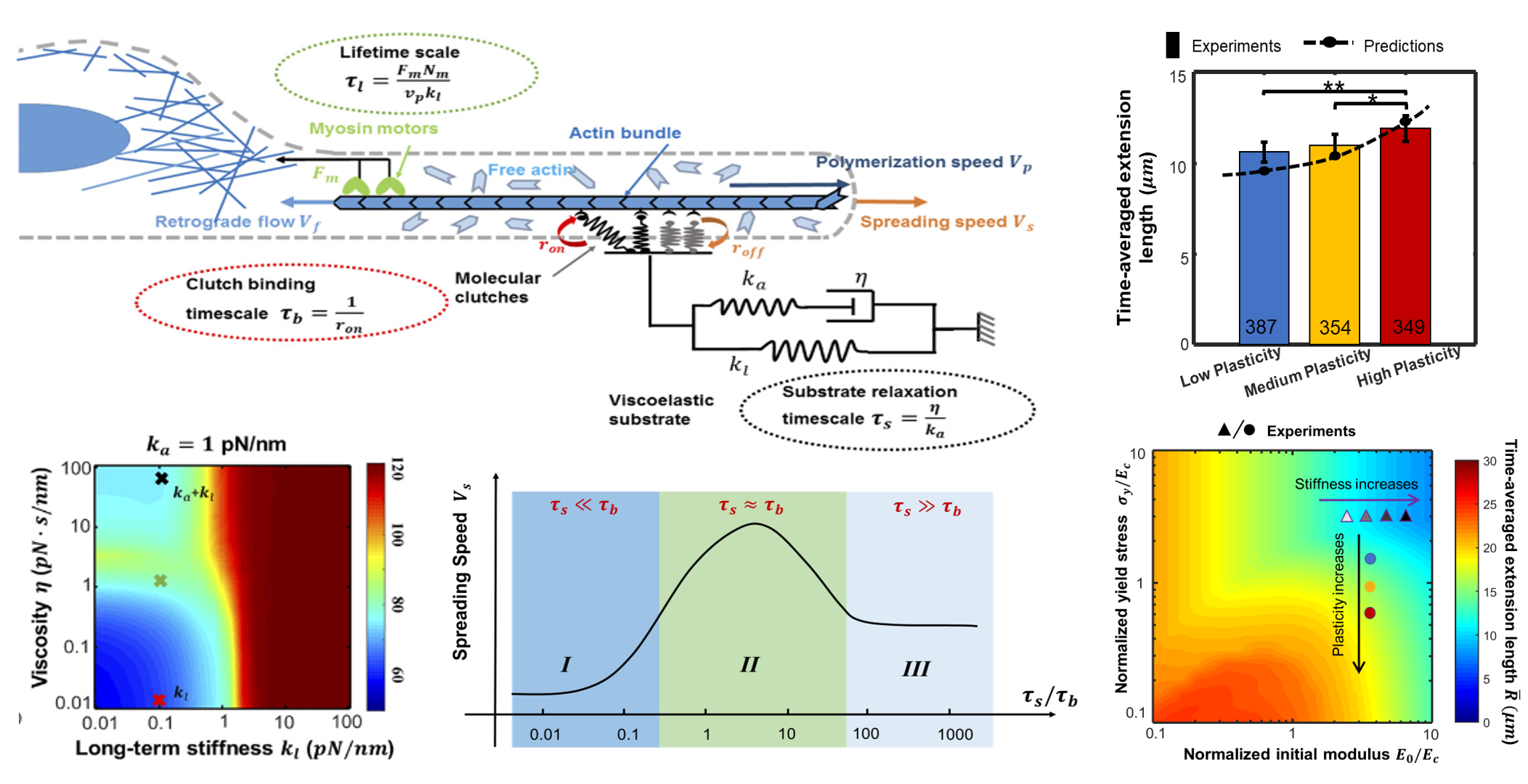Cell mechanosensing

Cells can sense and respond to mechanical properties, including stiffness and viscoelasticity, of their microenvironment (extracellular matrices). This ability of cell mechanosensing plays an important role in physiological and pathological processes such as tumor formation, wound healing and tissue fibrosis, which has become the frontier research direction of mechanobiology. Experiments have shown that most of the extracellular matrices (ECMs) exhibit viscoelastic properties, and the matrix viscoelasticity can regulate the stem cell differentiation, cell cell spreading, and cell migration. Through the combination of theory and experiments, our research group explores the effect of viscoelasticity, viscoplasticity, and other nonlinear mechanical properties of the external matrix on cells. Our research aims to reveal the impact of the previously under-recognized dissipative properties on the dynamic behavior of cells, offering new ideas and theoretical support for the design and optimization of bio-materials.
Related Publications:
Z. Gong, et al., PNAS, 2018;
Z. Gong, et al, Cell Rep., 2021;
K. Adebowale, Z. Gong, et al., Nat. Mater., 2021;
K Mandal, Z Gong, et al., Biomater. Sci., 2020;